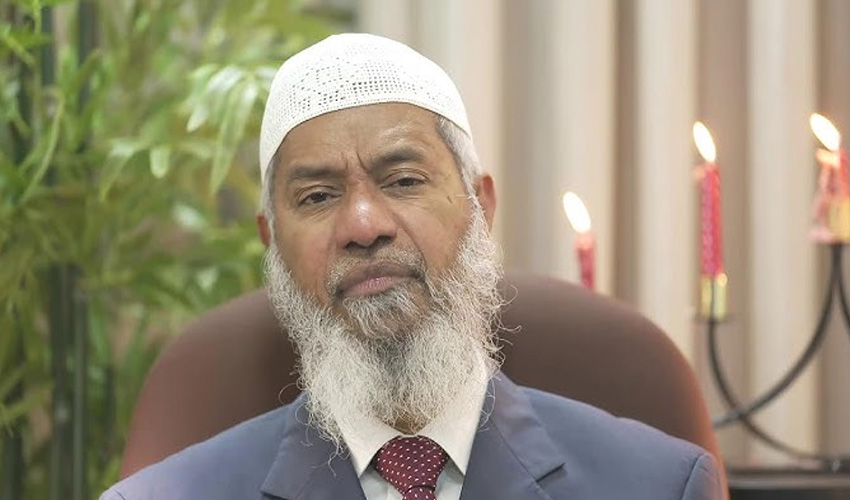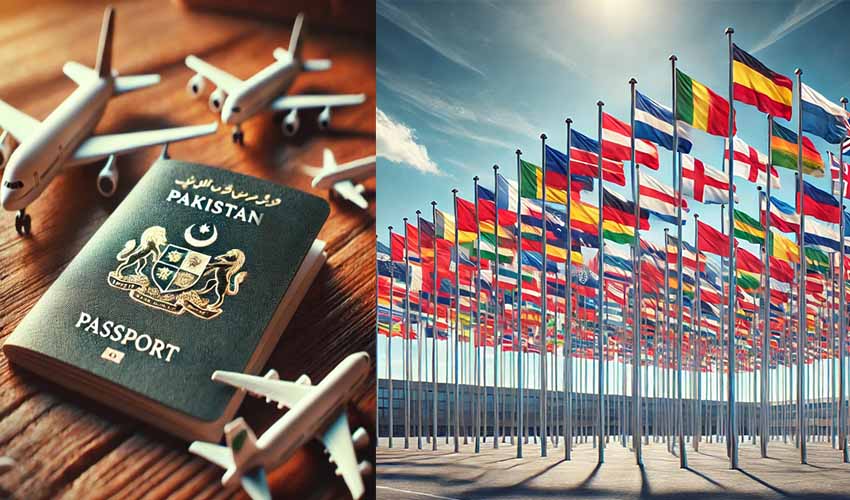Dr Zakir Naik’s upcoming visit to Pakistan has ignited debates on both religious and diplomatic fronts. While his appearance may seem like a religious event on the surface, it holds deep diplomatic significance, particularly concerning the strained relations between nuclear acrh rivals Pakistan and India.
Dr Naik, a renowned Islamic preacher and comparative religion expert, is a highly controversial figure, especially in India, where he faces accusations of money laundering and inciting religious extremism.
Diplomatic ramifications
Dr Zakir Naik’s visit to Pakistan is set to rattle Indian diplomats and the broader establishment. Naik, who currently resides in Malaysia, has been pursued by the Indian government for extradition due to his alleged involvement in money laundering and his speeches that India claims promote extremism.
Despite several attempts by India to secure his extradition, Malaysia has resisted these efforts, leaving Dr. Naik free to continue his international engagements.
His visit to Pakistan will undoubtedly spark discussion in India, where the government under Prime Minister Narendra Modi has faced criticism for its handling of the situation. The Islamic preacher’s presence in Pakistan could be perceived as a political victory for Islamabad, as it symbolises the failure of India’s diplomatic attempts to bring him to trial.
India has repeatedly labeled Naik a supporter of Islamic extremism, with Indian media often associating him with controversial figures like Osama bin Laden and the Islamic State. These claims have been vehemently denied by Naik, but the accusations persist. His visit to Pakistan comes at a time when relations between India and Pakistan are particularly tense, and his presence is likely to aggravate Indian authorities further.
In a recent podcast with Pakistani YouTuber Nader Ali, Naik discussed the possibility of returning to India. He pointed out that while it is easy to leave India, returning could lead to immediate arrest. He went on to claim that Indian Prime Minister Narendra Modi’s political standing has weakened, making the situation even more precarious for him.
Naik's visit can be seen as a blow to India’s diplomatic efforts and a calculated move by Pakistan. By inviting a figure who has been a thorn in India’s side, Pakistan sends a message that it stands firmly against Indian policies and has no qualms about hosting individuals who challenge India's narrative. For Pakistan, this may be considered a diplomatic victory, positioning itself as a nation capable of resisting India's influence.
The religious dimension
On the religious front, Dr. Zakir Naik’s visit is equally significant, particularly for Pakistan’s youth. Over the past few years, atheism and secular thought have been gaining traction among the younger generation in Pakistan, fueled in part by the widespread availability of online content from secular or non-religious thinkers. Many young people have become disillusioned with organized religion after engaging with “YouTube scholars” who present arguments against faith or traditional Islamic teachings.
This is where Dr. Naik's expertise in comparative religion comes into play. Known for his deep knowledge of religious texts and his ability to engage with audiences who are skeptical or even hostile toward religion, Naik has converted thousands of people to Islam by presenting logical arguments that resonate with modern scientific understanding.
His audience tends to be educated, scientifically literate, and often questioning of traditional religious views. Naik’s sessions in Pakistan are likely to attract young people who have either drifted away from Islam or are grappling with questions about faith.
Pakistan is currently witnessing a growing number of youth who are either unsure about their beliefs or have entirely rejected them. Dr. Naik’s unique ability to engage with these young minds makes him a crucial figure for religious outreach at this critical juncture.
Unlike many traditional scholars, Naik is known for his calm demeanour and fact-based debates, which appeal to rational thinkers. He has the potential to address the doubts of Pakistan’s youth in a manner that is intellectually satisfying and free from the dogmatism that often characterizes religious discourse.
Dr. Zakir Naik is often considered the intellectual heir to the late Sheikh Ahmed Deedat, another renowned comparative religion scholar. Like Deedat, Naik specializes in comparing Islam with other major world religions, particularly Christianity and Hinduism.
This comparative approach is critical in today’s globalized world, where young people are exposed to a variety of belief systems and ideologies. By openly discussing the virtues and flaws of various religions, Naik provides a platform for informed debate, which is essential for any youth grappling with existential questions.



























